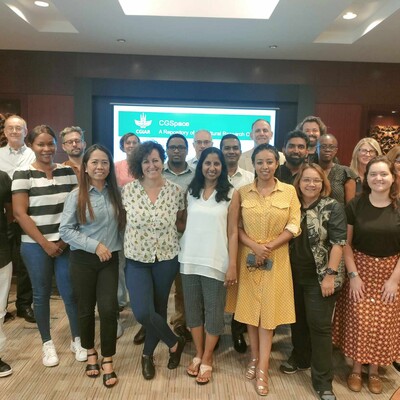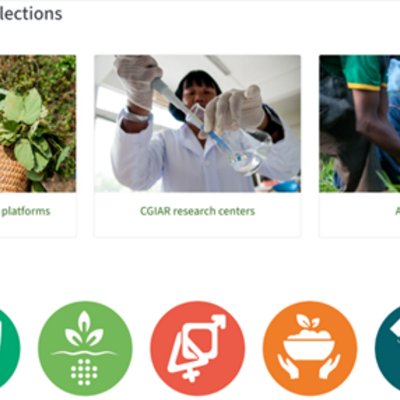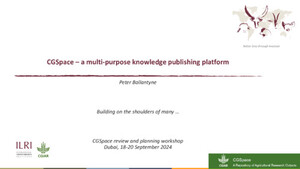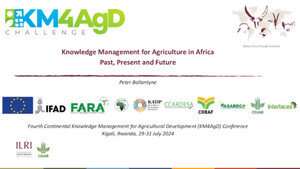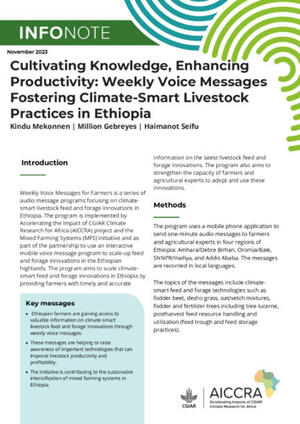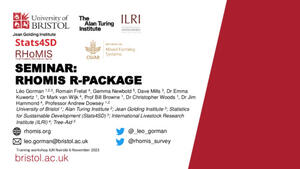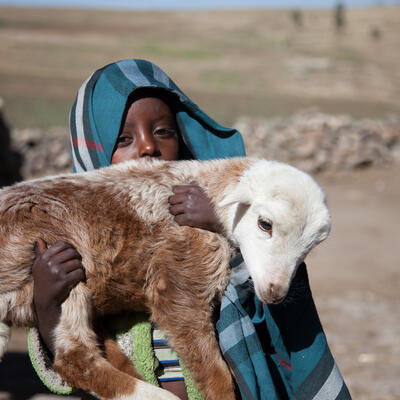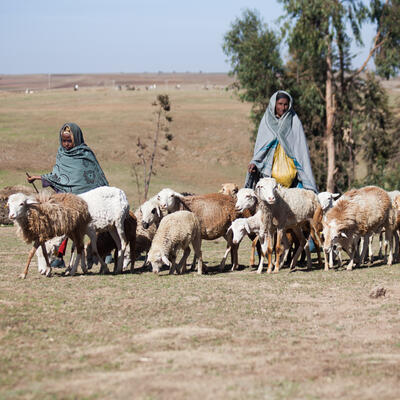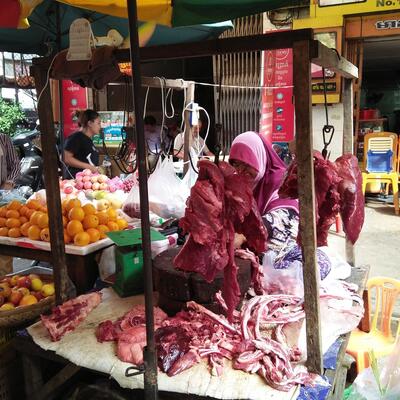
Getting knowledge management and communication into CGIAR programs
In many CGIAR programs and activities, communication and knowledge management are invited too little and too late. This means that the results of their science may fall into oblivion. Much can be achieved by bringing communication and knowledge management right into the heart of CGIAR programs – to support engagement with partners, research uptake and development impact … all objectives at the centre of the CGIAR reform process.
Two workshops at ILRI Addis Ababa in December 2013 focused on these issues:
- A workshop on communication and knowledge management by and for the Challenge Program for Water and Food (CPWF), 2-3 December 2013. This workshop was drawing lessons from phase 2 of the program (2010-2013).
- A second workshop on knowledge management and communication for CGIAR Research Programs, 4-6 December 2013. This workshop examined ways to integrate communication and KM into the impact pathways of the ‘Water Land and Ecosystems‘ (WLE) and ‘Climate Change Agriculture and Food Security‘ (CCAFS) research programs. This workshop followed a earlier event in 2012.
Lessons from the Challenge Program Water and Food
The first workshop brought together twelve participants from six river basins (Andes, Ganges, Limpopo, Mekong, Nile and Volta).
Over the two days, the six basins presented their work (see results from the Nile Basin Development Challenge), teased out some successes and challenges and collectively developed a series of a) specific innovations that they thought were excellent examples that might be applied elsewhere and b) lessons and principles that matter elsewhere.
The lessons were rich – the discussions even richer – and provide a few excellent reflections:
- First, pay attention to the context – it dictates the mix of platforms, processes, and people that works;
- Developing a strategy is not that important; but having clear purpose and principles are essential;
- Use existing capacities, positive deviants, and be aware that roles change over time and also rely crucially on non-specialized KM and communications staff (e.g. the researchers, managers and other people involved);
- It is all about engagement, from the start and throughout, at all levels – and it needs thorough thinking to invite people to express themselves openly and to change (or circumvent) existing power dynamics;
- Tools and approaches are again very much conditioned by the context – they don’t always work for everyone;
- The best way to integrate KM and communications in CGIAR activities (and elsewhere?) is to combine its elements (e.g. information management, knowledge sharing etc.) and bind them with other related fields such as monitoring and evaluation and capacity development around ‘blurred boundaries’ all glued together with ongoing learning.
The workshop meshed naturally with the next three days. Miguel Saravia, Basin Leader for the Andes Basin Development Challenge introduced the lessons learned from CPWF in this Prezi:
http://prezi.com/sjxajomkqs-s/?utm_campaign=share&utm_medium=copy&rc=ex0share
The focus of the second meeting, however, was not so much looking back as looking forward.
Actions for CGIAR Research Programs
The knowledge management and communication for CGIAR Research Programs ‘kmc4CRP2’ workshop brought together nearly 40 specialists (and a couple of researchers) from around the globe. WLE and CCAFS were particularly well represented as they co-organized this workshop together with ILRI and the CGIAR Research Program on Livestock and Fish.
Over the three days, participants shared their thinking and activities around KM and communications in six different CGIAR Research Programs, explored the concept and practice of impact pathways and theories of change, shared practices around some specific tools and came up with ideas to continue such dialogue after the workshop. The CCAFS and WLE groups also developed ways to embed KM and communications in their overall program’s impact pathway.
It became apparent that ideas from the CPWF workshop are really important, that KM and communications should not be seen as a support service but as an integrated component of the research process. KM and communications specialists need to be involved in the development of proposals, of impact pathways and theories of change, of overall plans and activities for these large programs and they should remain involved in the decision-making throughout the program. And they must do all they can t engage closely with researchers and other actors.
Only so much can be covered in 3 days to it was important to define ways to continue the conversations and cooperation beyond the workshop. Participants proposed the following activities (among others):
- Host rotating online peer assists – as had been the case with the CPWF experiences in 2012;
- Host joint webinars using Google Hangouts and perhaps some online courses;
- Work together on global events as had been the case at the African Agricultural Science Week and more recently at the 19th Conference of the Parties (CoP19).
- Keep conversing on the Yammer group for CGIAR communication specialists (restricted access);
- Plan another ‘kmc4CRP’ meeting in 2014, possibly related to monitoring and evaluation or around capacity development with national partners.
Getting a community of communicators/knowledge management specialists to share and learn together effectively is a very useful step and these workshops build nicely on the first ‘kmc4CRP’ workshop. Several people noted that it would be great, in future, to involve more researchers in these workshops (as was done last year). That is certainlya key dimension if we want to integrate KM and communications into CGIAR activities.






